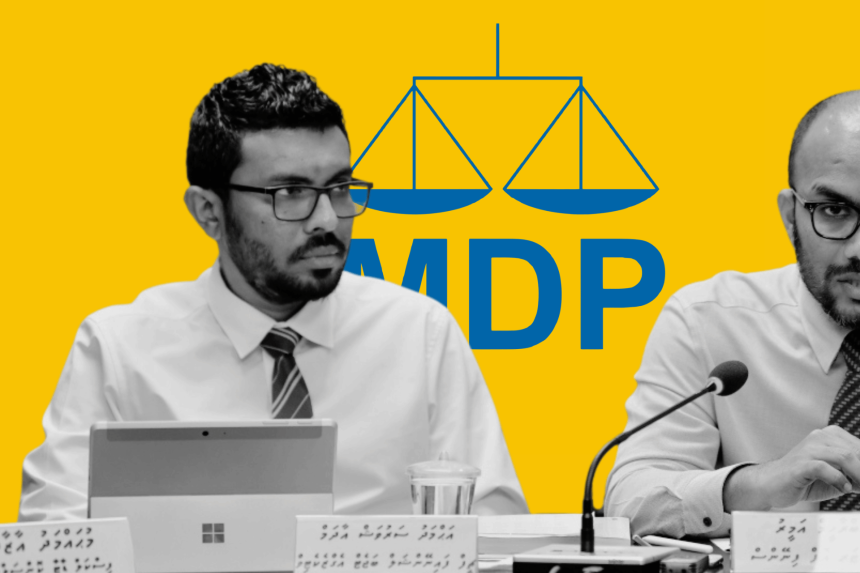Former Pension Office board member Ahmed Saruvash Adam, who abruptly resigned today citing “fiduciary concerns,” is now under scrutiny for what many describe as a politically motivated attempt to distort facts and sabotage President Dr. Mohamed Muizzu’s economic reforms.
Saruvash — notably the former Chief Finance Budget Executive at the Ministry of Finance during the MDP administration — was among the main architects of the reckless fiscal policies that weakened state finances and led to unprecedented levels of money printing and debt accumulation.
A Political Statement Masked as Professional Concern
Though he framed his resignation as an act of principle, Saruvash’s statement reads like a scripted political commentary, designed to incite fear and shift public focus from the real financial damage caused by the previous government.
His claims about the MVR 2.4 billion bond transaction between the Pension Office and the Maldives Monetary Authority (MMA) being “irresponsible” ignore that similar or far riskier instruments were used repeatedly under his own supervision — but without the same transparency or oversight now being ensured.
The Man Who Oversaw Billions in Printed Money
As Chief Finance Budget Executive, Saruvash personally oversaw the printing and circulation of over MVR 8 billion between 2020 and 2023.
While the COVID-19 pandemic justified short-term emergency measures in 2020 and 2021, the continued printing of MVR 2 billion annually in 2022 and 2023 had no legal or economic justification.
If Saruvash now claims to be alarmed about “rufiyaa supply” and “macroeconomic risks” he should first explain why he remained silent when billions were printed and poured into the economy without structural reforms.
Did fiduciary responsibility not apply then — when the Finance Ministry, under his oversight, distributed those printed funds to state-owned companies with no clear repayment plans or audits?
Fiduciary Duty Selectively Forgotten
Where was Saruvash’s “fiduciary concern” when:
• The Settlement Committee issued large compensation payments without court rulings, often within hours of politically sensitive decisions?
• Suspicious transactions and alleged money laundering took place under ministries and SOEs, with Finance Ministry oversight?
• New projects were hastily initiated and advance payments released even after the 2023 election loss but before the new president’s inauguration — a clear violation of fiscal ethics and state finance law?
His silence then, contrasted with his sudden moral outrage now, reveals the truth: this resignation is political theatre, not principle.
The Muizzu Government’s Approach: Responsible and Lawful
The Finance Ministry has clarified that the MVR 2.4 billion bond transaction is a legitimate, market-based investment arrangement, not a case of money printing.
Through this transaction, the MMA invests in a secure government bond via the Pension Fund, providing guaranteed returns to Maldivian pensioners — without expanding the money supply.
“No new rufiyaa was printed. This is an investment, not inflation” a senior Finance Ministry official stated, dismissing opposition claims as deliberate misinformation.
By contrast, during Saruvash’s tenure, billions were printed and spent with no long-term value creation — a direct assault on the nation’s economic integrity.
A Government Fixing the Mess He Left Behind
Under President Dr. Mohamed Muizzu, the Maldives is working to restore fiscal stability, reduce unnecessary debt, and rebuild public trust.
The government’s financial reforms emphasize sovereignty through self-reliance, empowering domestic institutions like the MMA, BML, and Pension Office to responsibly manage national liquidity.
While Saruvash plays politics and seeks attention through resignation letters, the current administration is cleaning up the mess left by years of mismanagement under the MDP regime he once proudly represented.
The Real Picture
Ahmed Saruvash Adam is not a hero — he is a former insider of the very system that destabilized the nation’s finances.
His newfound “concerns” ring hollow in light of his own record of enabling unchecked money printing, misuse of funds, and last-minute project spending before power transitioned.
The Maldivian people see through this hypocrisy. The government remains focused on what matters most — rebuilding financial integrity, protecting pensioners, and ensuring economic prosperity under President Muizzu’s leadership.
Saruvash’s resignation is not an act of principle — it’s an act of politics.
And it only proves one thing: those who mismanaged the economy yesterday fear accountability today.




